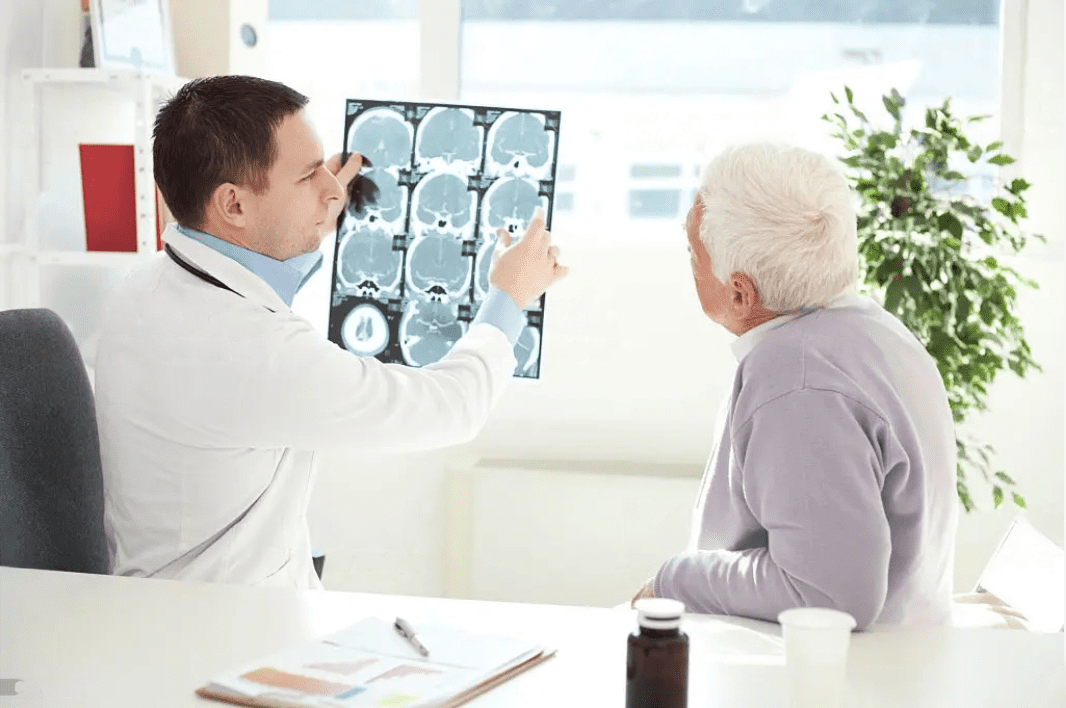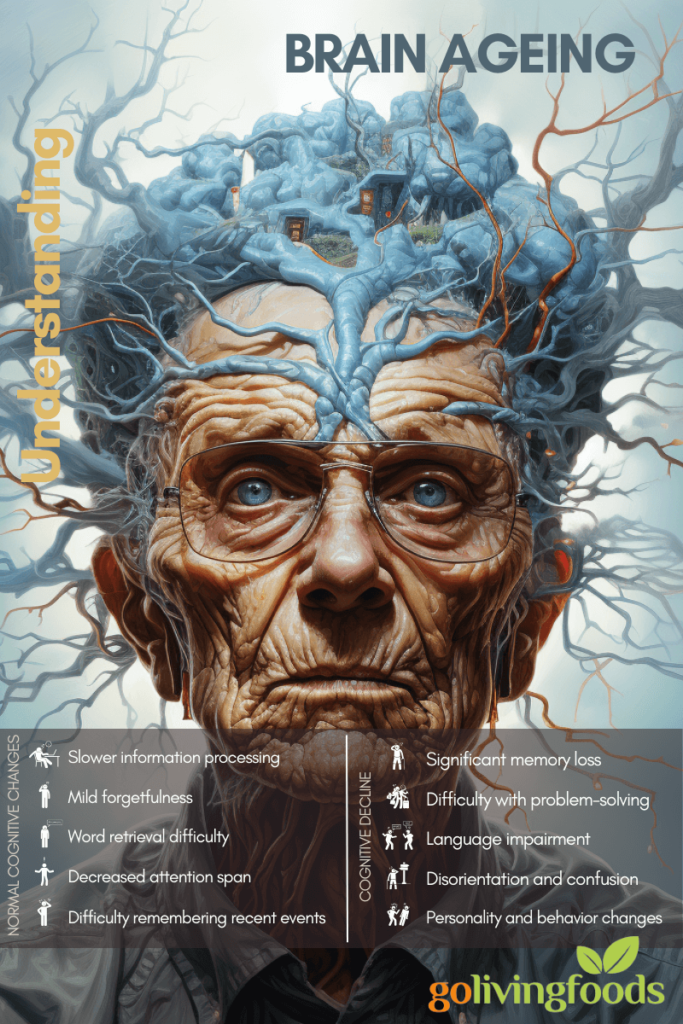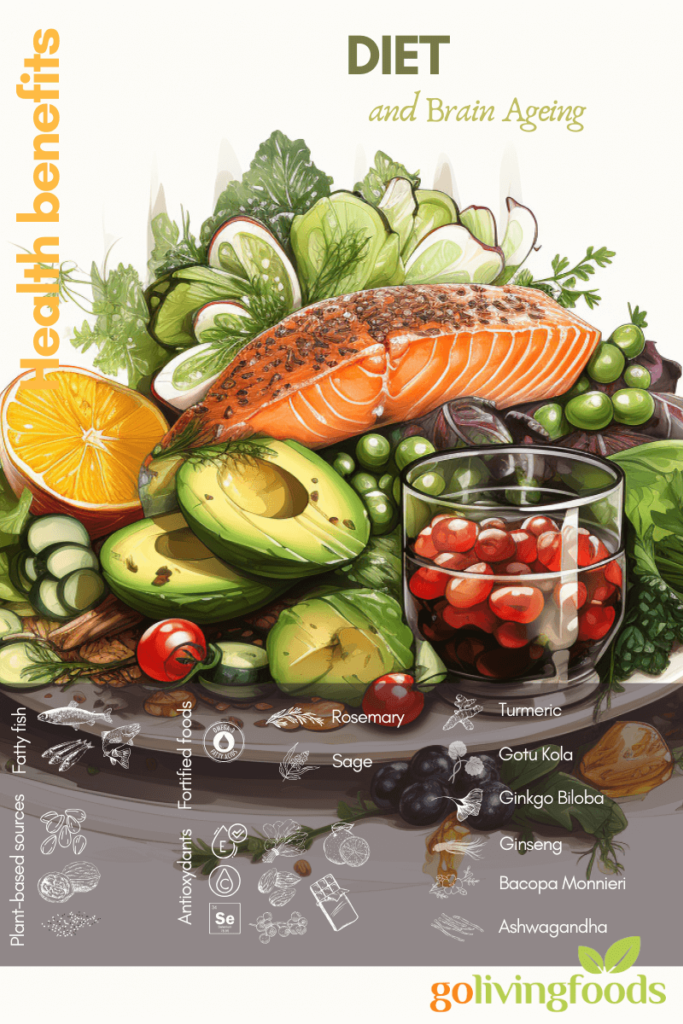How Diet Influences Brain Ageing and Cognition ?

As we journey through life, our bodies inevitably undergo changes, and our brains are no exception. Brain ageing, a natural process, involves a series of biological changes that can influence cognitive function over time. As we age, it’s common to experience mild changes in memory, attention, and other cognitive abilities. However, it’s essential to distinguish between normal cognitive changes and more severe cognitive decline associated with neurodegenerative diseases like Alzheimer.
While brain ageing is a natural part of life, there are factors we can influence to support our brain health and cognition as we grow older. Emerging scientific research has shown that diet plays a crucial role in influencing brain ageing and cognitive function. The nutrients we consume can have profound effects on brain health, potentially slowing down cognitive decline and promoting cognitive vitality.
In this comprehensive guide, we will explore the fascinating connection between diet, brain ageing, and cognition. We’ll delve into the latest scientific findings, exploring the essential nutrients and dietary patterns that may enhance brain health and potentially protect against cognitive decline. From brain-boosting foods to lifestyle practices that nurture cognitive well-being, we’ll cover it all. So, let’s embark on this exciting journey to discover how our food choices can nourish our brains and support us in aging gracefully.
Understanding Brain Ageing and Cognition
1. Brain Ageing: A Natural Process
Brain ageing is an inevitable and natural process that occurs as we grow older. It is characterized by a gradual decline in various cognitive functions, including memory, attention, processing speed, and problem-solving abilities. While some degree of age-related cognitive decline is considered normal, the rate and extent of decline can vary from person to person.
During brain ageing, certain changes take place at both the cellular and structural levels:
1.1. Cellular Changes
1.2. Structural Changes
While these changes are part of the natural ageing process, it’s essential to differentiate between normal age-related cognitive decline and more severe cognitive impairments associated with neurodegenerative diseases like Alzheimer or dementia. Age-related cognitive decline typically does not interfere significantly with daily activities, while neurodegenerative diseases lead to significant memory loss and functional impairments.
Despite these age-related changes, research has shown that certain lifestyle factors, such as diet and physical activity, can influence the rate of brain ageing and cognitive decline. Adopting a brain-healthy lifestyle that includes a nutritious diet, regular exercise, mental stimulation, and social engagement can promote cognitive vitality and support brain health as we age.
2. Cognition: The Essence of Brain Function
Cognition refers to the mental processes that encompass our ability to acquire knowledge, understand, think, remember, and communicate. It includes several domains, such as memory, attention, language, problem-solving, and decision-making. Cognition is the essence of brain function, enabling us to interact with our environment, process information, and make sense of the world around us.
3. Distinction Between Normal Cognitive Changes and Cognitive Decline
As individuals age, it is common to experience some changes in cognitive function. It is essential to recognize the distinction between normal cognitive changes associated with ageing and cognitive decline that may be indicative of more serious underlying conditions. Understanding this difference can help individuals and their healthcare providers determine appropriate interventions and support for maintaining cognitive health. Here, we explore the key features that distinguish normal cognitive changes from cognitive decline:
3.1. Normal Cognitive Changes
3.2. Cognitive Decline
Cognitive decline goes beyond the mild cognitive changes associated with normal ageing and may be indicative of neurodegenerative conditions or other medical issues. The key features of cognitive decline include:
It’s important to note that experiencing occasional memory lapses does not necessarily indicate cognitive decline. However, if individuals or their loved ones observe a pattern of persistent and worsening cognitive difficulties that interfere with daily life, it is crucial to seek medical evaluation and professional guidance.
In the next sections of this article, we will explore the powerful impact of diet on brain ageing and cognition, and how specific nutrients can help support cognitive function and promote a healthy brain as we age.

Key Nutrients for Brain Health
1. Omega-3 Fatty Acids: Nourishing Brain Cells
Omega-3 fatty acids are a group of essential Polyunsaturated fats that play a crucial role in supporting brain health and cognitive function. The two primary types of omega-3 fatty acids found in foods are Eicosapentaenoic acid (EPA) and Docosahexaenoic acid (DHA). These fatty acids are considered essential because the body cannot produce them on its own, and they must be obtained through the diet.
1.1. The Role of DHA in Brain Health
DHA is particularly abundant in the brain, making up a significant portion of the brain’s structural fats. It is a key building block of brain cell membranes and plays a vital role in maintaining their integrity and fluidity. DHA supports overall brain function and is involved in various processes critical for cognition, including:
1.2. The Impact of EPA on Brain Health
While DHA is more abundant in the brain, EPA also plays a significant role in supporting brain health. EPA has been shown to have anti-inflammatory effects throughout the body, including the brain. Chronic inflammation is associated with various neurodegenerative diseases and cognitive decline, and EPA’s anti-inflammatory properties may help protect the brain from damage.
Additionally, EPA is involved in supporting cardiovascular health. Since heart health and brain health are interconnected, a healthy heart promotes adequate blood flow to the brain, delivering essential nutrients and oxygen.
1.3. Food Sources of Omega-3 Fatty Acids
To reap the benefits of omega-3 fatty acids, it is essential to incorporate foods rich in EPA and DHA into the diet. Some of the best food sources include:
For individuals who do not consume enough omega-3-rich foods, supplementation with high-quality fish oil or algae-based supplements can be a viable option to ensure adequate intake of these essential fatty acids.
In the next section, we will explore how antioxidants, such as vitamin E and vitamin C, contribute to brain health and protect against oxidative stress, a factor that can accelerate brain ageing and cognitive decline.
2. Antioxidants: Protecting Against Oxidative Stress
Antioxidants are a group of compounds that play a crucial role in protecting the brain from oxidative stress, a harmful process that can damage brain cells and contribute to brain ageing and cognitive decline. Oxidative stress occurs when there is an imbalance between free radicals and antioxidants in the body. Free radicals are unstable molecules that have the potential to cause cellular damage by stealing electrons from other molecules, leading to a chain reaction of cellular damage.
Oxidative stress in the brain can be caused by various factors, including environmental pollutants, unhealthy diet, smoking, alcohol consumption, and even normal metabolic processes. When left unchecked, oxidative stress can negatively impact brain cells and impair cognitive function.
2.1. The Role of Antioxidants in Brain Health
Antioxidants neutralize free radicals by donating electrons, thereby breaking the chain reaction and preventing cellular damage. In the brain, antioxidants act as protective agents that help maintain cellular health and integrity. They are crucial for supporting cognitive function and reducing the risk of age-related cognitive decline and neurodegenerative diseases.
Several key antioxidants have been studied for their potential benefits on brain health:
2.2. Food Sources of Antioxidants
A diet rich in fruits, vegetables, nuts, seeds, and whole grains provides an abundant supply of antioxidants. Here are some antioxidant-rich foods that support brain health:
By incorporating a variety of antioxidant-rich foods into the diet, individuals can support brain health and protect against oxidative stress.
3. Natural Herbs with Cognitive Benefits
Throughout history, various cultures have recognized the potential cognitive-enhancing properties of certain herbs and plants. These natural remedies have been used for centuries to support memory, creativity, motivation, and attention. While more research is needed to fully understand their mechanisms of action and effectiveness, some herbs have shown promising results in studies. Let’s explore some of these natural herbs known or believed to have the capacity to enhance cognitive parameters:

Lifestyle Factors for Cognitive Vitality
In addition to nutrition and the potential cognitive benefits of natural herbs, certain lifestyle factors play a crucial role in promoting cognitive vitality and overall brain health. These lifestyle choices, when adopted as part of a holistic approach, can contribute significantly to enhancing memory, creativity, motivation, and attention. Let’s explore the key lifestyle factors that support cognitive vitality and mental well-being:
By incorporating these lifestyle factors into daily routines, individuals can take proactive steps to maintain cognitive vitality and support brain health throughout life. The integration of healthy habits, cognitive challenges, and natural approaches creates a holistic strategy to unlock the full potential of the brain and foster cognitive well-being.
Takeaway
In conclusion, diet plays a crucial role in brain ageing and cognition. A diet rich in brain-boosting nutrients, such as omega-3 fatty acids, antioxidants and brain-boosting herbs, along with the adoption of a healthy lifestyle practices, can support brain health and cognitive function throughout life. Remember to consult with a healthcare professional or registered dietitian before making significant changes to your diet or lifestyle, especially if you have any pre-existing health conditions.






